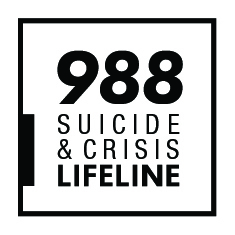People Who Put the “Ability” in “Disability”
You may have heard of a few conditions which are considered Developmental Disabilities: cerebral palsy, autism, Down syndrome, epilepsy, and many others. In general, developmental disabilities are physical and/or mental impairments which become evident early in a person’s life. These disabilities may affect the person’s ability to take care of him or herself, to communicate, to move independently, to live independently, or to be financially self-sufficient. However, many people who have developmental disabilities are able to work, to drive, to live on their own, and to marry and have families.
Below are stories of a few real-life people who live in our community and have developmental disabilities. (To protect the individuals’ privacy, names have been changed and some personal details have been altered.)
Jane lived in an Adult Foster Care home for years. Even though it was called a “home,” it never felt like home to Jane. Jane’s case worker remembers visiting her there one day when Jane casually leaned against the refrigerator as they talked. The home manager saw it and snapped, “Don’t touch the fridge!” Jane immediately jumped back. She was embarrassed and belittled to be treated this way in front of a visitor. Understandably, Jane wanted to move out. She was middle-aged at this time. She told her case worker she wanted to at least try living on her own before she was too old and had to move to an “old folks home.”
After a little work, Jane was able to get her first apartment. Her case worker remembers how exciting it was for Jane to finally have a place to call home. As they walked through the kitchen, Jane reached out with a little grin and said, “I can touch the fridge here!” Jane continued to live successfully in her own apartment for 15 years. When she finally needed to move to a place with more living supports, it was because of her older age and physical health, not because of her disability.
As a young man, Barry got into some trouble due to his drinking. His case worker gave him support to stop drinking and stay out of trouble, but Barry wasn’t completely ready to change his ways. Then he met Alice. They fell in love and moved in together. Alice didn’t like Barry’s drinking, so with her support, he quit. Barry’s disability had made it hard for him to live well on his own. Alice had a few more skills than he. Together, they established a stable home. Barry got a job, and he and Alice had two children. Before long, Barry didn’t need a case worker anymore. His former case worker ran into him and his family not too long ago. “Remember me?” he asked with a proud smile.
Ellen was living with some family friends when a neighbor reported that she was being exploited for her money. Due to her disability, Ellen received Social Security Disability income. The people she lived with were taking her income for their own use, and making her do household chores for free.
Ellen started getting services from Community Mental Health. She met many people like her who had disabilities, but lived on their own. Pretty soon, Ellen decided she wanted that too. As soon as possible, her case worker helped her get an apartment. Nowadays, Ellen gets some in-home help due to a physical injury. But mostly she takes care of herself. She spends time visiting with friends, shopping, and doing other community activities that she enjoys.
Of course, having a developmental disability can make life challenging. But it doesn’t mean a person can’t live on his or her own, live where he or she wants, and do what he or she wants to do in life. With creativity and perseverance, hopes and dreams can be achieved.
Betsy Reed is the Quality Assurance and Public Relations Coordinator at West Michigan Community Mental Health.
CONTACT:
Betsy Reed
West Michigan Community Mental Health System
Phone: 231-843-7285
Fax: 231-845-7095
Email: BetsyR@WMCMHS.org
 or
or 